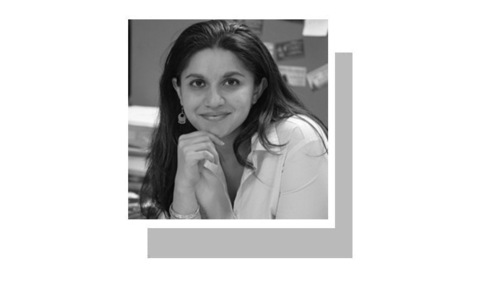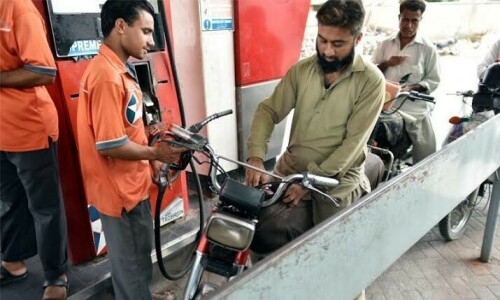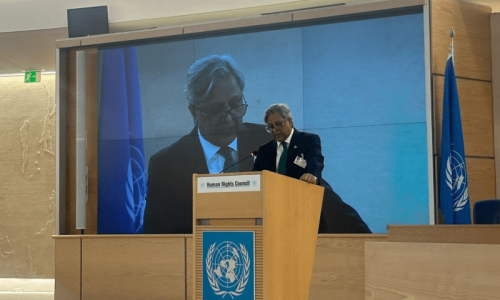WHAT options lie beyond democracy for Pakistan? The national path to high-quality democracy is long and multi-staged globally. Transitional/nascent democracy follows autocracy. A few credible elections have been held here, governance remains poor, non-elected institutions often remain powerful and coups thus probable.
Stable democracy is where regular elections become routine, non-elected institutions subservient, coups improbable and governance starts improving, as in Indonesia. Finally, there is western-style mature democracy.
Pakistani democracy could never graduate beyond transitional democracy during its previous brief eras of four, five and 11 years (1947-51, 1972-77 and 1988-99). Even in the longest phase, four elected governments were dismissed prematurely.
Our worst political crises all started under dictatorship.
The last 6.5 years represent democracy’s longest uninterrupted sojourn here. Pakistanis have only seen democracy’s worst face (transitional) but have never been allowed to witness stable democracy where its fruits begin sprouting. In contrast, non-democratic periods lasted 20 (1951-71), 11 (1977-1988) and nine (1999-2008) years.
Global experiences show that democracy has a longish gestation period but its performance improves, while that of autocracy deteriorates, with longevity. Pakistan has treated democracy like an infant given five years to start performing like adults, failing which it is executed for ostensibly destroying Pakistan.
Ironically, the ‘adults’ who removed the ‘infant’ to save Pakistan inflicted greater mortal damage. The worst democracies are supposedly better than the best autocracies. Pakistani experiences validate this saying. Even Pakistan’s transitional (ie the worst) democracies have outperformed its ‘best’ (Ayub’s and Musharraf’s) autocracies overall. Superficially, both autocracies had higher economic growth rates than elected regimes.
However, the gap narrows considerably once one removes the contributions of external factors, eg, greater American aid to dictators and booming global economies during the Ayub and Musharraf eras but enormous global economic crises during the elected 1970s and post-2008 eras.
Even the remaining edge traceable to superior economic management under dictators loses its allure since Pakistan’s worst political crises all started under dictatorships. These include the alienation and separation of the former East Pakistan, spread of extremism and ethno-sectarian violence under Zia and rise of terrorism under Musharraf.
If even Pakistan’s transitional democracies have outperformed its best autocracies, how much better a stable democracy, if allowed in Pakistan, would do? Indonesia’s case is instructive for Pakistan here since both countries share many similarities. Both are large, ethnically diverse, Muslim countries with populations of around 200 million. Both suffered around 40 years of autocracy and disintegrated under it. Both have experienced serious terrorism.
However, since 1998, Indonesia has become a stable democracy and is today one of the three non-oil Muslim countries (along with Turkey and Malaysia) progressing economically. Ironically, all three are democracies, demolishing arguments about the non-compatibility of Islam, democracy and development. Those propagating East Asia-style dictatorship should study Indonesia most, since it is more similar to Pakistan.
Pakistan’s nascent democracy has not borne such fruit and its performance is shoddy, in line with nascent democracies globally. However, if one eschews short-sightedness, one can see pre-fruit flowers emerging even under this malfunctioning democracy.
The outputs of 6.5 years of nascent democracy are not serving immediate public consumption demands. However, they are unleashing political changes that will eventually serve even immediate public consumption needs.
Consider three examples. Zia and Musharraf both promised clean politics in their first speeches. However, clean politics cannot emerge without clean elections held after major electoral reforms. Ironically, despite ruling with sweeping powers for 20 years combined, neither introduced serious electoral reforms but held several rigged elections and referenda. It is only since 2008 that major electoral reforms are being pursued.
Secondly, both dictators wanted to keep the PPP out, but it won both times they were forced to hold freer elections in 1988 and 2008. However, it lost after five years of its own rule in 2013, showing that five years of democracy are more effective than 20 years of autocracy.
Thirdly, take the case of PTI — the ‘third’ option that has emerged since 2008. Ironically, it floundered under Musharraf even though he promised a new leadership and made the PPP and PML-N almost non-functional.
Autocracy represents the fast but unsteady rabbit, democracy the slow, steady tortoise. Invariably, the tortoise wins. So, the answer to the initial article question is that beyond transitional democracy lies stable democracy for Pakistan, with its attendant fruits.
The writer is a political economist.
Published in Dawn, March 6th, 2015
On a mobile phone? Get the Dawn Mobile App: Apple Store | Google Play












































